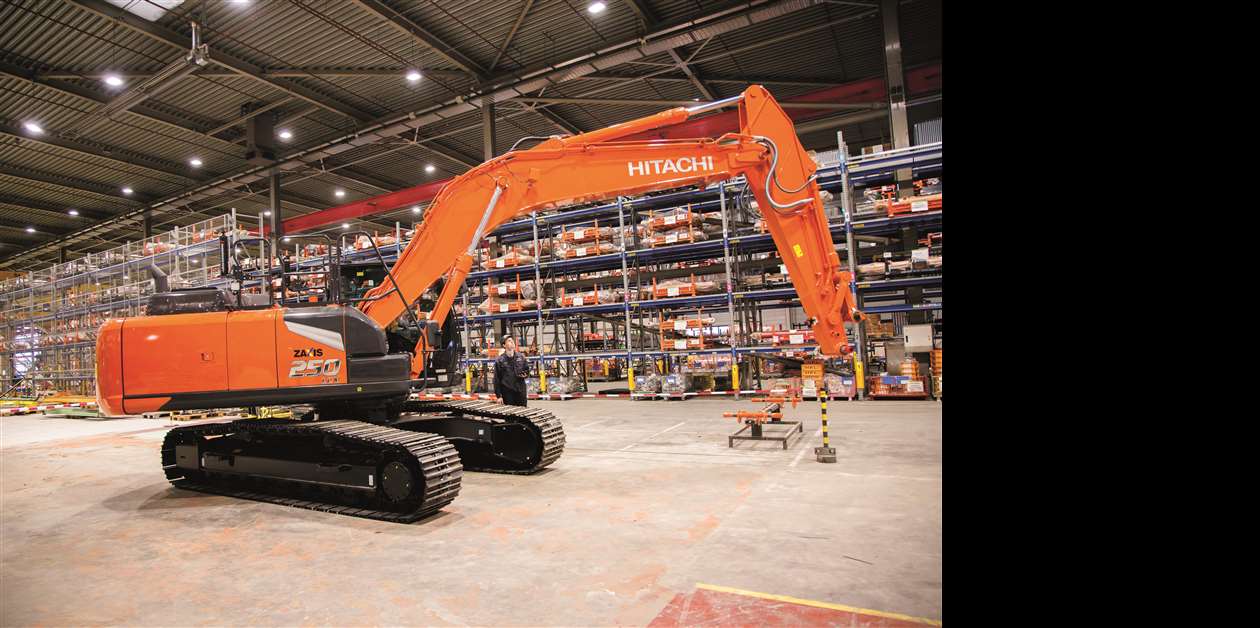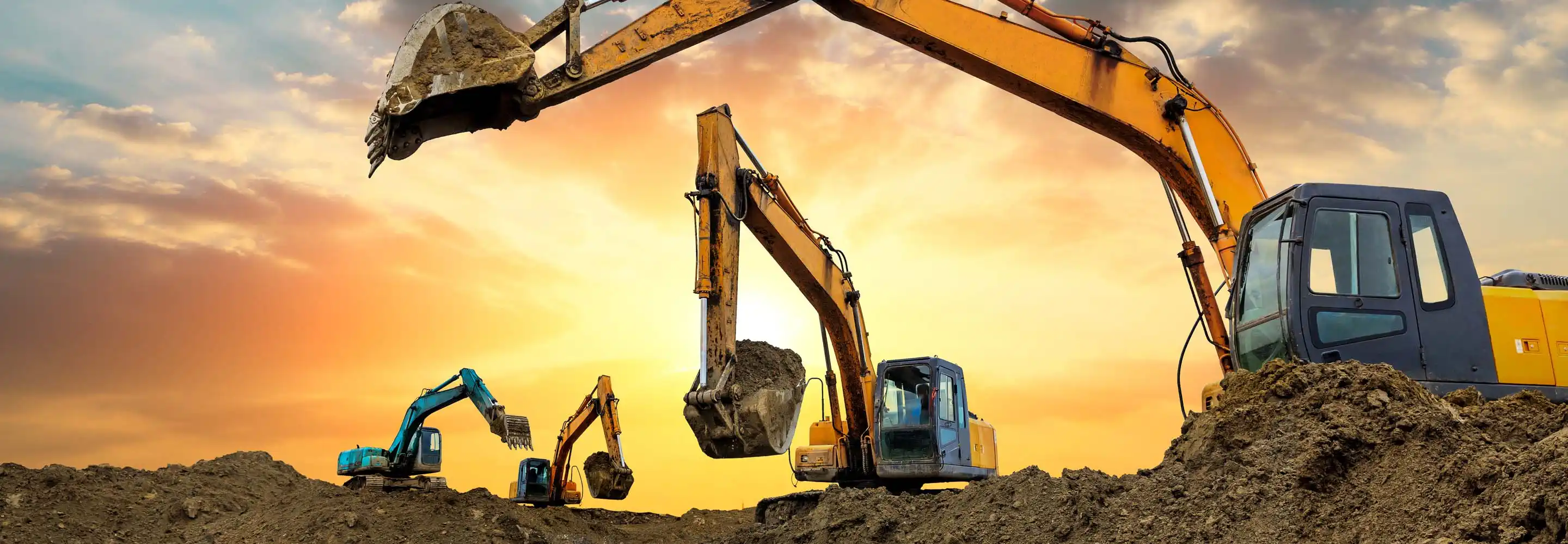Mini Excavator Rental in Tuscaloosa, AL: Compact and Powerful Equipment for Small Jobs
Mini Excavator Rental in Tuscaloosa, AL: Compact and Powerful Equipment for Small Jobs
Blog Article
Discovering the Financial Conveniences of Renting Building Devices Contrasted to Owning It Long-Term
The choice between possessing and renting out construction equipment is crucial for economic administration in the sector. Leasing deals instant price savings and operational flexibility, enabling firms to allocate resources a lot more successfully. In comparison, ownership includes significant long-term monetary commitments, consisting of maintenance and depreciation. As service providers evaluate these alternatives, the effect on capital, project timelines, and innovation access becomes progressively significant. Understanding these nuances is crucial, specifically when considering exactly how they line up with specific task requirements and economic approaches. What factors should be prioritized to make sure optimum decision-making in this complicated landscape?

Price Comparison: Renting Vs. Having
When evaluating the monetary implications of leasing versus possessing construction tools, a complete price contrast is important for making informed choices. The choice in between owning and renting out can significantly impact a business's bottom line, and recognizing the associated expenses is critical.
Renting building tools usually involves reduced upfront expenses, enabling companies to allocate capital to various other operational demands. Rental agreements typically consist of flexible terms, enabling firms to accessibility advanced machinery without long-lasting dedications. This flexibility can be specifically helpful for short-term jobs or changing workloads. However, rental expenses can gather in time, potentially surpassing the cost of ownership if devices is needed for a prolonged duration.
Conversely, possessing building and construction equipment calls for a significant first financial investment, along with ongoing prices such as devaluation, insurance coverage, and financing. While possession can cause long-lasting financial savings, it likewise connects up funding and may not give the same degree of adaptability as leasing. In addition, owning tools requires a commitment to its usage, which may not always line up with job needs.
Eventually, the choice to own or lease should be based upon an extensive evaluation of particular project needs, economic ability, and long-term calculated goals.

Upkeep Duties and expenses
The option between possessing and leasing building devices not just entails financial factors to consider yet also includes continuous upkeep expenditures and duties. Owning equipment requires a considerable dedication to its upkeep, that includes regular evaluations, fixings, and prospective upgrades. These duties can promptly accumulate, causing unforeseen prices that can stress a spending plan.
In comparison, when renting out tools, upkeep is usually the duty of the rental business. This arrangement enables specialists to stay clear of the financial problem associated with wear and tear, as well as the logistical challenges of organizing repair services. Rental agreements often consist of arrangements for upkeep, suggesting that professionals can concentrate on completing jobs as opposed to bothering with equipment condition.
In addition, the diverse series of tools available for rent allows business to select the most up to date versions with advanced modern technology, which can boost efficiency and efficiency - scissor lift rental in Tuscaloosa, AL. By selecting services, companies can avoid the long-lasting liability of equipment devaluation and the linked maintenance migraines. Ultimately, reviewing maintenance expenses and obligations is crucial for making a notified decision concerning whether to rent out or have construction devices, significantly affecting overall task expenses and functional effectiveness

Devaluation Impact on Possession
A substantial variable to take into consideration in the choice to possess building and construction tools is the effect of depreciation on overall possession prices. Depreciation represents the decrease in worth of the devices gradually, influenced by elements such as usage, wear and tear, and developments in technology. As equipment ages, its market price diminishes, which can substantially influence the proprietor's monetary position when it comes time to market or trade the devices.
For building business, this devaluation can translate to considerable losses if the tools is not made use internet of to its fullest potential or if it lapses. Proprietors have to account for depreciation in their monetary projections, which can result in greater total prices contrasted to renting. Furthermore, the tax obligation effects of depreciation can be complex; while it might give some tax obligation benefits, these are typically balanced out by the truth of lowered resale worth.
Inevitably, the worry of depreciation emphasizes the value of recognizing the lasting economic dedication entailed in owning construction equipment. Companies should carefully evaluate how frequently they will make use of the tools and the prospective monetary impact of depreciation to make an informed choice regarding ownership versus renting.
Economic Versatility of Leasing
Renting construction tools supplies considerable monetary versatility, allowing firms to designate resources extra successfully. This versatility is specifically vital in an industry characterized by fluctuating task demands and differing workloads. By deciding to lease, organizations can prevent the substantial resources outlay needed for buying equipment, maintaining capital for other functional needs.
Furthermore, renting tools enables firms to customize their equipment options to details project needs without the long-lasting dedication connected with possession. This implies that services can easily scale their equipment supply up or down based on expected and existing project needs. As a result, this versatility decreases the danger of over-investment in equipment that might come to be underutilized or obsolete in time.
One more monetary advantage of leasing is the capacity for tax obligation benefits. Rental repayments are often considered operating budget, enabling instant tax obligation deductions, unlike depreciation on owned devices, which is topped a number of years. scissor lift rental in Tuscaloosa, AL. This instant cost recognition can even more enhance a business's money setting
Long-Term Project Considerations
When ready mix concrete pump price examining the long-lasting demands of a building and construction organization, the choice in between having and renting equipment becomes more intricate. Trick elements to consider consist of project period, regularity of usage, and the nature of upcoming tasks. For tasks with extensive timelines, buying tools may seem advantageous as a result of the possibility for lower total expenses. Nonetheless, if the equipment will certainly not be used regularly throughout jobs, owning might lead to underutilization and unneeded expenditure on storage, insurance policy, and maintenance.
The building and construction sector is progressing quickly, with brand-new devices offering enhanced efficiency and security features. This flexibility is especially advantageous for companies that take care of varied tasks needing different types of tools.
In addition, monetary stability plays a vital role. Owning tools commonly involves navigate to these guys significant capital expense and depreciation worries, while leasing allows for even more foreseeable budgeting and capital. Eventually, the option in between renting out and having should be straightened with the tactical purposes of the construction organization, considering both current and expected project demands.
Verdict
In final thought, renting out construction equipment provides considerable economic benefits over long-term possession. Ultimately, the decision to rent rather than own aligns with the vibrant nature of building projects, allowing for versatility and access to the most recent tools without the economic worries linked with possession.
As equipment ages, its market value diminishes, which can significantly influence the owner's financial setting when it comes time to sell or trade the equipment.
Leasing building devices provides significant financial flexibility, permitting firms to designate resources more successfully.In addition, leasing equipment enables firms to tailor their equipment selections to details job requirements without the lasting commitment associated with possession.In conclusion, renting building and construction devices offers significant financial advantages over long-lasting ownership. Inevitably, the decision to rent out rather than own aligns with the vibrant nature of construction tasks, allowing for flexibility and access to the newest tools without the monetary problems associated with ownership.
Report this page